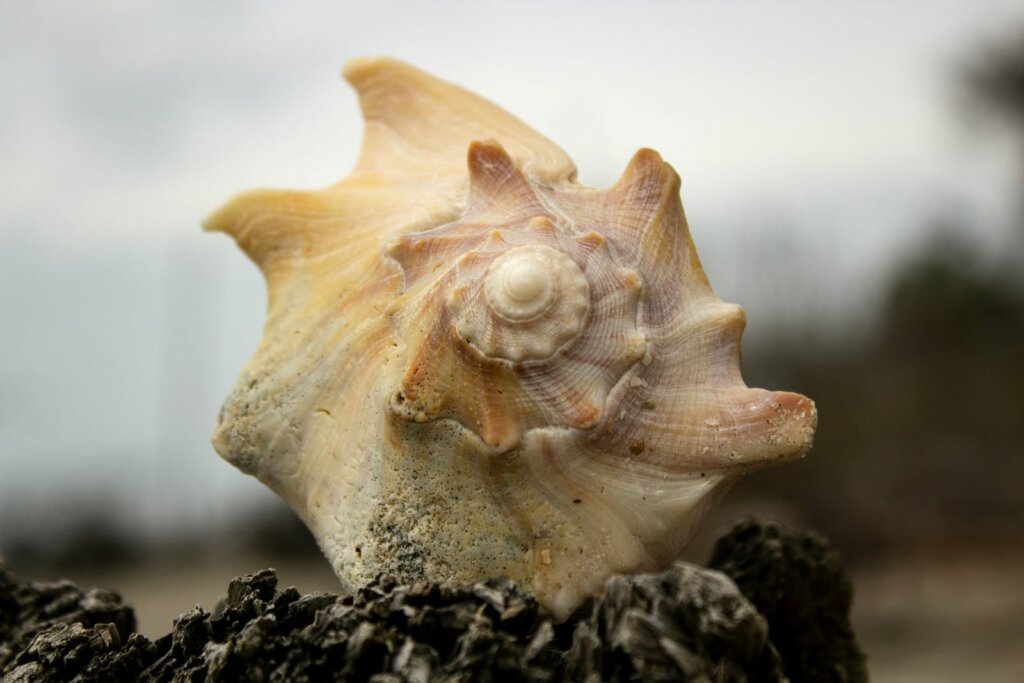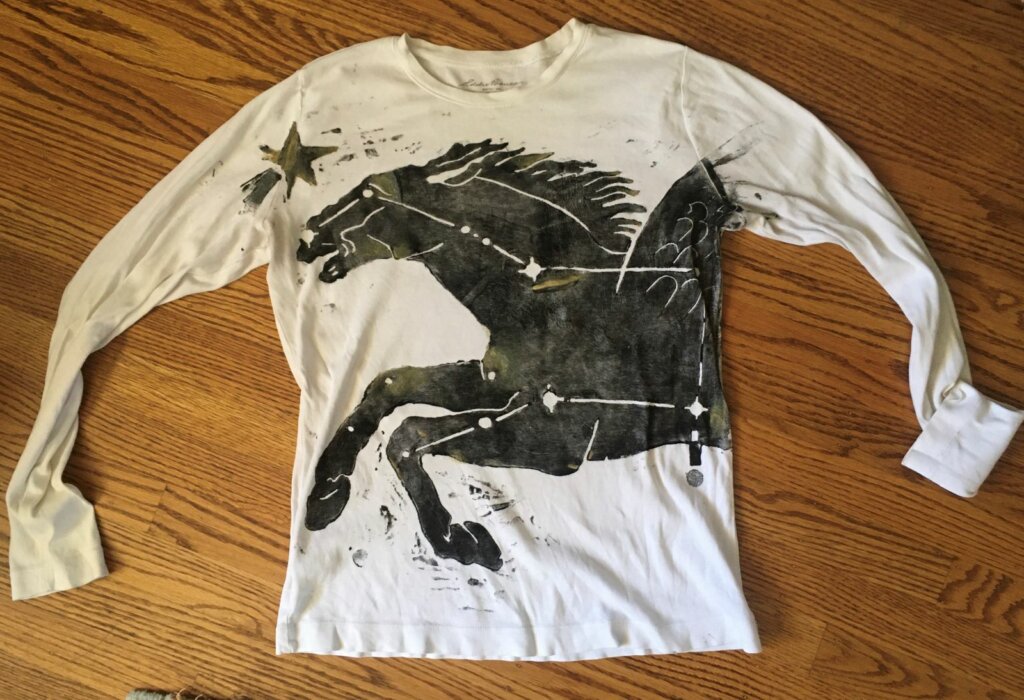An emotion I feel frequently is frustration and it’s usually because people and situations aren’t moving as fast as I’d like. I don’t mean literally – I’m not a speed demon – I mean in terms of actions. A frequent complaint I have is, “Why is this taking so long?” That’s everything from a person returning my telephone call to becoming a bestselling author. I want everything yesterday. The whole “waiting” thing is a ripoff, if you ask me. Given my penchant for moving quickly, it should be no surprise that the universe gives me plenty of opportunities to practice patience.
I’ve written dozens of posts about patience over the years, including most recently on New Year’s Eve when I wrote about the future unfolding. I know that things bloom when they’re ready and we’re looking at our watches while God is looking at the calendar. But even with all those posts, I still want things to move quickly! This might also be a good time to mention it’s taken me three times as long to write this post as my other ones and that even writing a post about it being OK to go slow, I want to go fast.
I’m struggling with what to say but when I let my writing flow in the form of a letter, the words poured out. Here’s a letter to me from my Great Self but maybe your Great Self wants you to hear it too:
“I know you want everything yesterday. I know nothing moves as quickly as you’d like. You see the end-game, you know how things could be. It’s one of your gifts to dream, to imagine. It’s the creative spark that lives within you seeking expression. You have an active mind and that’s one of the best things about you.
“It’s easy for you to make big jumps, to go from A to Z very quickly but not everyone else is like that. Other people need to take baby steps. They need to move slower. They need time for their brains and bodies to catch up. It’s OK for you to match their pace, it’s OK for you to go slow. It’s OK for you to rest and relax and know that everything is going exactly as it should at the pace it should.
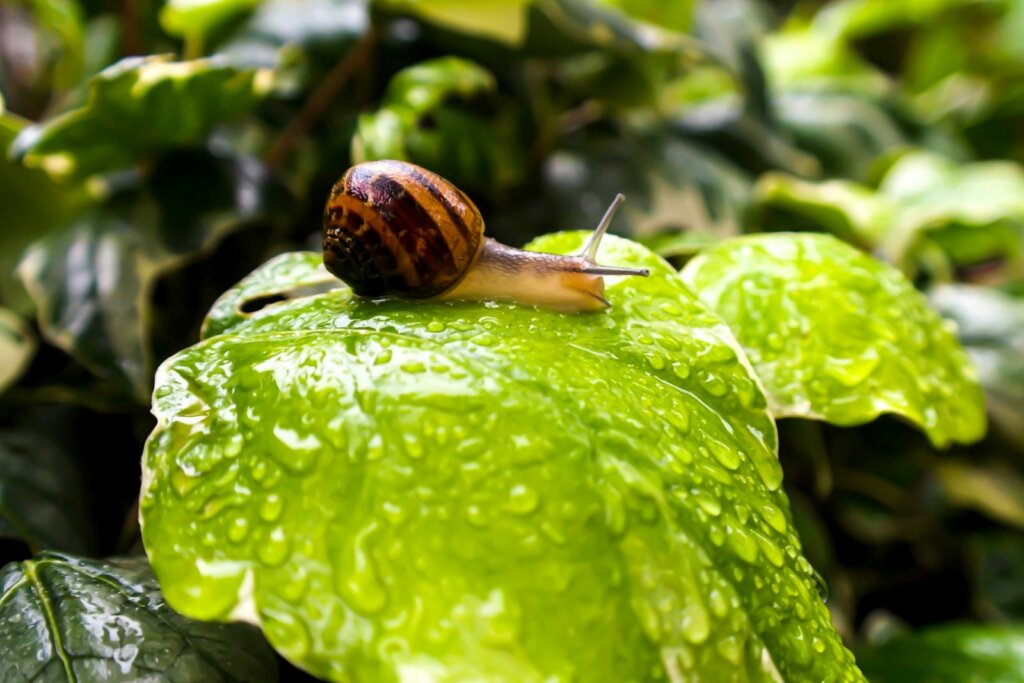
If you’re going at a snail’s pace, that’s OK too. Photo by Olivier Piau on Unsplash
“You aren’t alone, you aren’t doing all this by yourself. It’s not your self-will that’s making things happen. It’s you matching the universal, Cosmic rhythm. It’s you syncing your desires with the Cosmic desires. It’s the outside world pouring into you, supporting you.
“When you want to rush, think about the natural world. You may want to harvest blueberries right now but you have to wait for a bud, then a bloom, then a blueberry. The natural world knows how to move slowly. It’s the human world that does not. It’s people who say you should have this accomplished by this age and if you don’t, you’re a failure. It’s the human world that touts overnight successes and doesn’t honor the people who write four books before they publish a bestseller. It’s the human world that tells you that you should be moving at a pace other than the one you’re moving at.
“All of nature is here telling you it’s OK to go slow, that you can take all the time you need. Rest, be gentle with yourself, and know there’s nothing shameful or wrong about incrementally working toward the things you want. That’s usually how it happens.
“Remember that your spiritual teacher says, ‘Suppose, immediately after planting some saplings and seeds, someone digs them up to find out if they have taken root or sprouted. That would not be considered wise.’
“Sometimes you have to wait for your desires to be expressed, but there’s nothing wrong with that. It’s natural and the way the world works. You’re doing great and even though you don’t believe it, all is well, my dear, all is well. Go as slow as you need to go and let other people go slowly too. What is meant for you will not run past you. Trust that.”
I dream of a world where we remember it’s humans who tell us to rush and go as fast as possible. A world where we understand nature models slow and steady progress. A world where we recognize it can take a while for our dreams and desires to sprout but that doesn’t mean they aren’t blossoming. A world where we remind ourselves it’s OK to go slow.
Another world is not only possible, it’s probable.
I’m a big fan of plans. I like organization and structure because it helps me to relax and feel safe. (But that’s not to say I hate spontaneity because I don’t. One of my favorite things is when someone calls me and says, “Hey, I’m in your neighborhood. Are you free?”) Given my feelings about plans, it should be no surprise that I make a lot of them: plans for events and also my life.
This past week though, boy, am I feeling the punchline of that joke, “How do you make God laugh? Tell Her your plans.” Nearly all of my plans were scuppered, dashed, and any other word you can think of that means “didn’t work.” It was everything from telephone calls to housesitting. The amount I had to pivot this past week was astounding. When these things don’t work out, I feel frustrated, disappointed, and depending on the situation, despair.
I have to remind myself that Love has a plan for me (and it has a plan for you, too). Here are two small examples of how I know that’s true. I was supposed to housesit on Tuesday and Wednesday but the homeowners canceled last minute. I had already made tentative plans that hinged on being at their place so I was of course disappointed. But you know what happened? On Wednesday, I felt a searing pain in my hip that I hadn’t experienced in years. I spent the afternoon lying in bed watching Netflix. In other words, it was a blessing that I wasn’t in a stranger’s home scavenging for a heating pad and painkillers.

It may not seem like it, but Love has a plan for you. Photo by Khadeeja Yasser on Unsplash
On Thursday, I woke up about two hours earlier than I normally do, which meant I also napped two hours earlier than I usually do. (For the unfamiliar, I can’t keep my eyes open four hours after I wake up.) An HVAC guy was scheduled to come to my house between 1 and 5 p.m. but he showed up early at 12:15, right when I’d normally be napping. If I hadn’t woken up earlier in the day unintentionally, and thus napped earlier, I would have missed him completely.
When you live with the truth that Love has a plan for you, something interesting happens. Tosha Silver says it best in her book Outrageous Openness:
“You begin to feel on a cellular level that things are unfolding exactly in the way that they should. At the rate and timing they need. You start to trust the process. You relax from the endless pushing that most of us learned at birth. On some fundamental, mysterious level, you just let go …. [Y]ou relax into this calm curiosity about where the flow might go. You’re detached yet somehow riveted by how the story will unfold. You feel spaciously receptive and open to what wishes to come.”
I’m not saying I have this mastered by any means. I do love my plans, after all, but I’m trying. I keep turning to Love and saying, “You know what’s best for me. Align my will with your will. Help me to know and trust that everything is unfolding exactly as it should.” For someone like me, this is INCREDIBLY difficult but fighting the plan Love has for me is like fighting the tide and anyway, I’ve seen over and over again that Love knows better than I do.
I dream of a world where we realize that things are unfolding in exactly the way they should. A world where we understand when things don’t happen how we’d like there might be a very good reason for it. A world where we let go and relax into a calm curiosity about what will happen next. A world where we remember even when it doesn’t seem like it, Love has a plan for us.
Another world is not only possible, it’s probable.
I love astrology for many reasons but one of them is that it offers me perspective. Starting in 2008, Pluto entered the sign of Capricorn and proceeded to show us the dark underbelly of themes associated with that sign: money and power, primarily. We’ve seen corruption in the banking industry, politics, the judicial system, and more. The evils of white supremacy and patriarchy have stared us in the face. That’s not to say some people weren’t talking about these things before 2008, because they were, but when Pluto moved into Capricorn, these issues became mainstream.
What we’re seeing now is the last gasp of that old way of being, embodied by Donald Trump. He is a convicted felon, a white supremacist, and a perpetrator of violence against women. Oh, and he wants to be the next king of the United States. Whereas in years past people were more secretive about these things, now it’s all out in the open. As you likely know, on July 26 Trump said, “Christians, get out and vote, just this time. You won’t have to do it anymore, you know what? Four more years, it’ll be fixed. It’ll be fine. You won’t have to vote anymore my beautiful Christians.”

A new day is dawning. Photo by Austin Schmid on Unsplash
So that’s terrifying. But you know what gives me hope? That Pluto is moving into Aquarius. Pluto in Aquarius says, “Screw top-down hierarchy – give me bottom-up! Power to the people, baby!” Whereas the dark side of Pluto in Capricorn is a consolidation of power, just as Trump is displaying, Pluto in Aquarius is about empowering the individual. It says, “You do you. Let your freak flag fly, honey!”
Zooming out gives me hope that we’re heading in a positive direction and it supports the sentiments of my spiritual teacher who says:
“There are some people who are pessimistic. They say that the society around us is very bleak … Pessimists say this because they have never made any detailed study of human history, nor do they care to. Had they done so, they would certainly be optimistic, because if they had looked carefully at the symptoms of pause, they would have realized that significant preparations were being made for the subsequent phase of speed. So under no circumstances should human beings be pessimistic. That is why I am always an incorrigible optimist because I know that optimism is life.”
Optimism is life and I’m choosing to keep living. That means that while some people’s words and behavior are appalling and terrifying, I’m choosing to believe things can and do get better. That we’re entering a new era. This post is very quote-heavy but I’m going to share another one from my spiritual teacher because he says it better than I can:
“Just as the advent of the purple dawn is inevitable at the end of the cimmerian darkness of the interlunar night, exactly in the same way I know that a gloriously brilliant chapter will also come after the endless reproach and humiliation of the neglected humanity of today.
“Those who love humanity and those who desire the welfare of living beings should be vigorously active from this very moment, after shaking off all lethargy and sloth, so that the most auspicious hour arrives at the earliest.”
I’m doing what I can so that the auspicious hour arrives sooner rather than later and I hope that you are too because together we can bring about the dawning of a new age.
I dream of a world where we remember that nothing lasts forever. A world where we understand even corruption gets stamped out eventually. A world where we realize that optimism is life. A world where we all work together to bring about the dawning of a new age.
Another world is not only possible, it’s probable.
This morning I dreamed a seashell the size of a baby whale was sucked back into the ocean, despite my best efforts. I held on to the rim of the seashell and tried to swim back to shore with it. Two-story waves kept crashing over my head leaving me gasping for air. Eventually, I gave up because I knew if I didn’t let go, the riptide would pull me so far away from shore that I wouldn’t be able to swim back and I’d drown. I released the shell and crawled back to the beach exhausted, relieved, and disappointed as this shell I’d wanted so badly slipped further and further away from me.
I’m sure there are many layers to unpack with the dream but I’m going to share about the most obvious. It’s hard for me to let go. I will literally water a dead plant. The way this shows up in my relationships is I’ll keep holding on long past the point where it’s wise. I may not have heard from someone in months but I’ll still text them and say, “Hey, it’s been a while. Let’s catch up,” or, “I’d love to see you soon. Are you busy next week?” Despite not hearing anything in return, I’ll try again.
I do this because when I love someone, I really love them. I forgive them for their flaws, show understanding for what they’re going through, and accept however they want to show up in the relationship. I do this because I focus on the good times, the times we were close, the times when the relationship was working, and so it’s hard for me to accept the current reality where I have no clue what’s happening in their lives. It’s painful, really painful. What helps me is remembering that just because the relationship is dead doesn’t mean it didn’t matter.
Jung said, “The meeting of two personalities is like the contact of two chemical substances: if there is any reaction, both are transformed.” We were both transformed and on my end, every relationship leaves a mark. I wrote about this in my unpublished romantic comedy. The main character is talking about romantic love in the quote I’m about to share but the sentiment applies to every sort of love. I’ve changed the wording a bit so it fits with this blogpost:
“She expected falling in love to feel like a bomb – explosive, undeniable, irrevocably changing everything. Instead, falling in love was more like a leaky bathroom faucet, the slow and steady drip of water eventually wearing away the porcelain until it left an indelible mark. For better or for worse, the person now had a permanent space just for them.”
Sometimes that permanent space is like a scar, a reminder of what was, and other times that permanent space is like an internal organ, active and functioning. I often long for the scars to turn into organs but they very rarely do.
I opened this post writing about letting go and that’s what I’m doing here. I’m acknowledging most scars remain scars and longing for what was doesn’t serve anyone. Who I am in the present moment deserves to spend time with other people who make an effort for me in the present moment. Otherwise, it’s like I’m holding on to a giant seashell that’s destined for the ocean.
I dream of a world where we’re able to let go of old relationships and the dreams we had for those relationships. A world where we understand everyone we love has a permanent space in our psyches but sometimes that space is a scar. A world where we recognize sometimes the best thing we can do for ourselves is let someone go.
Another world is not only possible, it’s probable.
Francis Weller writes in his book The Wild Edge of Sorrow that on a trip to Burkina Faso, he remarked to one woman that she had a lot of joy. Her response was, “That’s because I cry a lot.” I keep thinking about that because I notice sometimes the people who are the most joyful, vibrant, and alive are also the most depressed and even suicidal.
This is on my mind because a friend of mine died suddenly about a week ago and I suspect it was a suicide based on the abruptness and also how his family hasn’t mentioned the cause of death. But just in case I’m wrong, I’m not going to name him publicly and instead write about someone I can: Robin Williams.
If you’ve seen any movies or interviews with Robin Williams, you know he was a wacky delight. Julie Kavner, best known as the voice of Marge Simpson, said in a Guardian article, “When we were making Awakenings, we were filming in the deserted part of a mental hospital, and often shooting through the night. And there was this TV in the corner on mute, and Robin, between breaks during the scenes, would go off on a riff, inventing dialogue on the TV show, entertaining everyone at 3 a.m., whatever time. It was a very tough role that he did a phenomenal amount of research for, but he didn’t keep to himself between takes – he was out there, giving to everyone.”
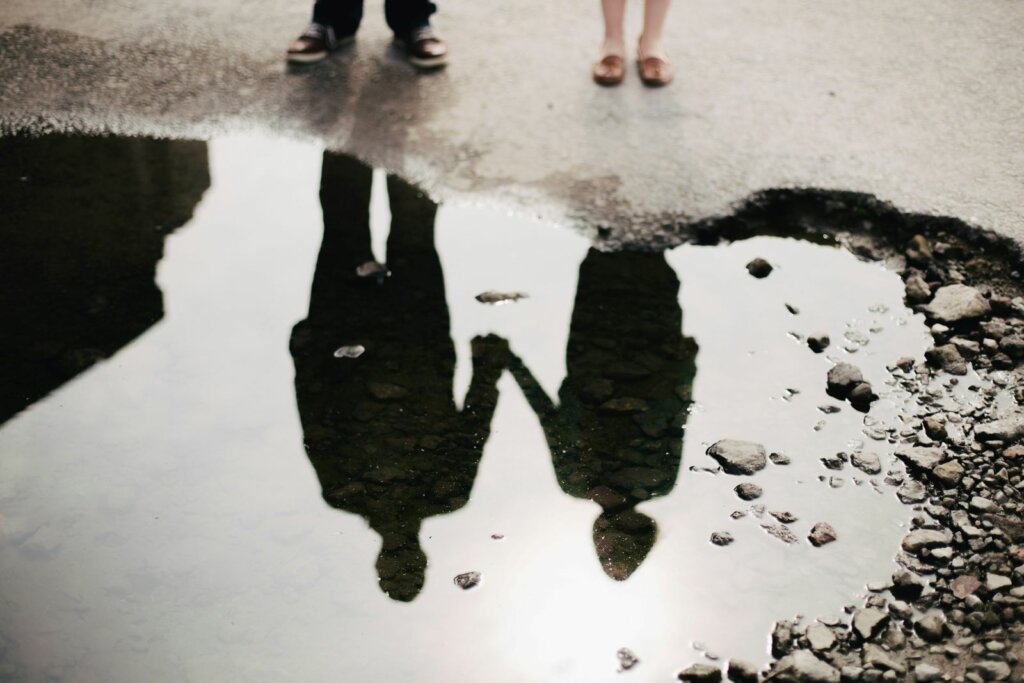
I hope you are held like this. Photo by The HK Photo Company on Unsplash
Williams was the life of the party and yet he committed suicide, shocking everyone. It turns out he had a form of dementia that essentially caused his brain to fall apart so who knows how much was the disease versus depression but even still. This man who was so capable of bringing joy to others suffered so greatly that he decided he couldn’t keep living. I have trouble wrapping my mind around that and posed the question on Facebook about the dichotomy.
One person responded that she was often the life of the party because she was compensating for depression. She was trying so hard not to be depressed, to not show people how low she felt that she put on a mask to hide it. But she also said she wished more people would talk about how they felt to normalize it, to know they don’t have to hide.
I can’t say this to my friend or to Robin Williams, but I can say it to you. I know what it’s like to be in the shadows and also the light. I’ve traversed both spaces and there’s nothing wrong with either. You don’t have to hide or pretend with me. You can take off your mask and let me know how you’re really feeling because I’m not scared to hold space for whatever is alive in you. Human beings are complicated and complex. Every part of you – the parts you’re proud of, the parts you’re ashamed of, the parts you’re scared of – all of them are welcome whether you share them with me or not.
Weller says, “Life is hard, filled with loss and suffering. Life is glorious, stunning, and incomparable. To deny either truth is to live in some fantasy of the ideal or to be crushed by the weight of pain. Instead, both are true, and it requires a familiarity with both sorrow and joy to fully encompass the full range of being human.”
I seek to encompass the full range of being human and that means I’m holding both light and shadow because I know neither can exist without the other.
I dream of a world where we take off our masks and express how we truly feel. A world where we recognize people want to know the real us, warts and all. A world where we remember authenticity is usually met with care. A world where we know both light and shadow exist in all of us and being human means holding both.
Another world is not only possible, it’s probable.
Cycles are on my mind because things from my past are looping back. I ran into someone I hadn’t seen in seven years. The clothing from when I was a teenager is making a comeback. We’re again having a Trump/Biden showdown. I can’t seem to articulate what I want to convey about all this so instead I’m resharing a post from September 2023. That means I’m not currently migrating old pictures, nor is it Mercury retrograde, but my overarching point is still relevant. Enjoy.
Right now, I’m migrating old pictures from my phone to my computer. In part, it’s to create more space but it’s also because I’m in the mood to clean and clear. In other words, I’m acting very much in line with Mercury retrograde, which is the time to reflect, reassess, and remove. Anything that begins with “re” is an appropriate Mercury retrograde activity.
What’s interesting is that instead of looking at the photos with wistfulness and nostalgia like I usually do, I’m struck with the parallels between then and now. My pictures from 2015 and 2016 show me with friends, visiting beautiful places in nature, flying to different states to attend weddings, and smiling with my meditation community. You might say, “That’s always what your pictures show. That’s nothing new,” and while there is consistency, 2015 and 2016 also held an excitement, a verve to my life that I haven’t felt in a long time.
In the ensuing eight years, the community I built broke apart, people moved away, relationships changed, and I didn’t have excitement or verve anymore. I was in a different cycle of life. But here I am, with a resurgence of verve and excitement. I’m meeting new people left and right, I’m building community, and there’s more energy. It’s as if the wheel of life turned once more and I’m re-experiencing a similar pattern.

Life is like a spiral, not a line. Photo by Ansgar Scheffold on Unsplash
As if to underscore my point, an enormous dragonfly whizzed by my window while writing this. I haven’t seen a dragonfly where I live for years and I regularly stare out the window. According to animal shamanism, “Dragonfly reminds you that change is the only constant in life. When dragonflies surround you, change is on the horizon …. Dragonfly can also be a positive omen indicating you are ready for a change to take shape in your life. Be flexible and adapt to evolving circumstances and you can progress in ways you haven’t imagined.”
So often when I think of change, I think of linear progress, of being transported to somewhere I’ve never been before. But today I’m realizing change is cyclical, just like everything in nature. We have day becoming night, spring becoming summer, and the moon waxing and waning over and over again. Human beings are embedded in nature, we are not separate from it so it makes sense that our changes would also be cyclical.
Change is the only constant in life, which is why my spiritual teacher says, “Here in the universe, nothing is stationary, nothing is fixed. Everything moves; that’s why this universe is called jagat. Movement is its dharma; movement is its innate characteristic.”
We are also moving and sometimes that movement is a spiral. It seems like we’re in the same place, but as with a spiral staircase, we aren’t exactly. We’re circling back, but we’re approaching the situation with a new perspective from a similar place.
I dream of a world where we recognize we are always moving and changing. A world where we understand just as nature has its cycles, we do too. A world where we realize change isn’t linear, progressing in a straight line, but more like a spiral shifting us to a similar, but slightly different place every time. A world where we understand things circle back.
Another world is not only possible, it’s probable.
I tend to gaslight myself. Many people use that term without knowing what it really is so to be clear, gaslighting means denying reality. The term originated in the 1938 theatrical play “Gas Light.” The play spawned several films, including Gaslight with Ingrid Bergman in 1944. Her character, Paula, starts to doubt her own truth and reality because her husband, Gregory, keeps lying to her. Literal gaslights dim and brighten for no apparent reason, which Gregory suggests is only Paula’s imagination but that isn’t true – he’s the one causing them to dim and brighten.
So often we talk about gaslighting in the form of other people, like how Donald Trump gaslights us every time he opens his mouth. It’s not that he’s lying, it’s that he’s lying about things that actually happened. He tells us, “I didn’t do that. I didn’t say that,” when there are clear records he did and said those things. Someone else denying our reality is one thing but gaslighting ourselves is another.

Sometimes we need to look in the mirror, not somewhere else. Photo by Viktor Forgacs™️ on Unsplash
I perpetually question whether something occurred, if it’s really true, or if I’m deluding myself. In short, I don’t trust myself. When I mentioned this to a friend, she laughed and said, “Rebekah, I literally put you in charge of my trust. I paid someone to write up a legal document with your name all over it with the word ‘trust’ in it. That’s how trustworthy you are.”
Well. I wasn’t expecting that but it was nice to hear that other people find me trustworthy, so much so they’re putting money on it. It’s become a new affirmation and the universe has backed it up. All week, the books I’ve read and the TV shows I’ve watched “happened” to talk about trusting yourself. In Tosha Silver’s book Outrageous Openness, she says, “Your answers are inside you.”
I forget that. I usually believe the answers are outside me, that other people know more than I do, that they have some secret knowledge or insight I don’t have. When something goes wrong in my life, I want to get 10 opinions about what to do or say because everyone else knows better. It’s tied to gaslighting because when you doubt your own reality, you perpetually think you can’t be trusted and that other people can be. But that’s not true. Other people lie. They make mistakes. They’re human.
In my spiritual tradition, we say the unchangeable entity is Sat and the external manifestation of sat is satya or benevolent truthfulness. I think of the truth as living “out there” and forget it’s also in here, in me. As I meditate, I’m touching the absolute truth, the omniscient being that resides with me as me. But if I keep denying the truth and seek it elsewhere, I’m throwing away the rice in my hand to beg for food.
My spiritual teacher says, “Even if one runs about the external world like a mad dog, one will not find [the Divine Beloved]. One will have to seek [It], the most beloved, with the highest love in the innermost recesses of the heart, in the most solitary jewel-case of the mind.”
In the context of truth and answers, the principle is the same. Some things require reality testing. I don’t know how to do calculus, for instance, but for others, I only need to look into the recesses of my heart because the answers are inside me.
I dream of a world where we stop gaslighting ourselves. A world where people are honest with themselves and each other. A world where we understand sometimes it’s important to seek out the truth but other times it’s important to remember the answers are already inside us.
Another world is not only possible, it’s probable.
The past week has been a huge lesson in humility. I don’t mean humiliation or low self-esteem. The word “humility” originates from the Church Latin word humilis, which literally translates as “on the ground.” Other words that mean “Earth” are also part of the etymology of “humility.” Being humble means keeping your feet on the ground, and staying present here on Earth. Sometimes humility is interpreted in the context of others, i.e., remembering you are no better and no worse than anyone else. Humility can also mean recognizing how powerless you are over yourself and others.
That’s been my experience in the past week, recognizing how powerless I am. I’ve had social interactions, or non-interactions as the case may be, that I REALLY didn’t anticipate. I reached out to eight people and none got back to me within a day or two like they usually do. Some of them still haven’t responded. As I told my friend, “If it’s odd, it’s God applies to the unpleasant things too.” I think God was forcing me to touch some unhealed places within me, particularly in my past where I felt lonely, alone, and invisible.
And then on Friday, I woke up with twinges of pain in the same places I experienced from my car accident in 2021. For context, I haven’t felt pain in those places for at least 1.5 years. It’s not like they ache on a regular basis. No, this was a searing, out-of-the-blue pain. It, too, forced me to confront a quite literal old wound.
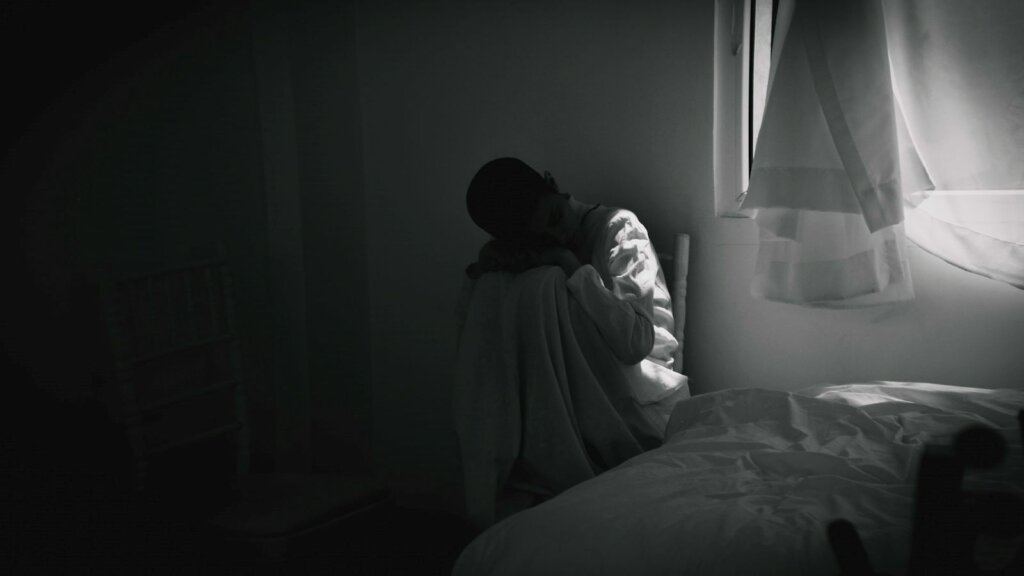
Sometimes life is like this. Photo by Sam Moghadam Khamseh on Unsplash
When I slowed down and asked myself what was up, why this all was happening, the answer that came to me was, “Your wounds are meant to be healed. You cannot pretend they don’t exist. Nor can you focus on how good your life is now as a way to fix when it wasn’t.” In other words, it doesn’t help to say, “Look how many friends you have now!” in response to the pain I felt when friendship was scarce.
Like I wrote about in 2020, trauma is always running in the background because it’s stored in the central nervous system. We used to think trauma was stored in the brain as a memory, but the latest research shows trauma is stored in the body. You might have heard of the book The Body Keeps the Score by Dr. Bessel van der Kolk which is all about this. He writes, “As long as you keep secrets and suppress information, you are fundamentally at war with yourself…The critical issue is allowing yourself to know what you know. That takes an enormous amount of courage.”
What I know is I’ve felt deep emotional and physical pain in my life. What I know is some of it remains unresolved because otherwise, I wouldn’t feel so triggered when eight people don’t get back to me. What I know is my physical body still has scar tissue from the various accidents I’ve been in. What I also know, but struggle to believe when so many things go wrong at once, is that my higher power wants me to be happy, joyous, and free.
I’ve quoted this poem by Hafiz before but I’m sharing it again because it’s appropriate. It’s called “Tripping Over Joy”:
What is the difference
Between your experience of Existence
And that of a saint?
The saint knows
That the spiritual path
Is a sublime chess game with God
And that the Beloved
Has just made such a Fantastic Move
That the saint is now continually
Tripping over Joy
And bursting out in Laughter
And saying, “I Surrender!”
Whereas, my dear,
I am afraid you still think
You have a thousand serious moves.
Humility reminds me I don’t have a thousand serious moves left. Humility reminds me that all I can do sometimes is surrender. Sometimes in laughter but sometimes in sorrow. That’s what I do when life brings me to my knees: I give in.
I dream of a world where we realize there’s a difference between humility and humiliation. A world where we understand old wounds continue to exist until we confront them. A world where we understand Higher Power wants us to be happy, joyous, and free, and sometimes that means hurting emotionally and physically. A world where we surrender when life brings us to our knees.
Another world is not only possible, it’s probable.
My very talented friend Krista Kahl hand-painted a shirt for me with the Pegasus constellation on it. I love this shirt. It’s the most interesting and unique thing I own and every time I wear it, I want people to compliment it. I have worn this shirt many times in numerous settings, always hoping someone will say, “I like your shirt” or even just “Cool shirt.” But they don’t.
As I wore this shirt the other day, I thought about what a former therapist told me: “The outside world reflects the inside world.” More specifically, “You don’t receive anything you aren’t already giving to yourself.” I don’t fully agree with him but I’ve found the premise to be true for the most part. So. Remembering that principle, I looked in the mirror and said, “I love your shirt, Rebekah! It’s so cool and unique!” Literally 30 minutes later at the chiropractor’s office, someone FINALLY said, “I like your shirt.” Ha! You can’t make this stuff up.
Why does this sort of thing happen? According to the spiritual philosophy I align with, everything is a thought projection of Cosmic Consciousness. That means nothing is external and everything is internal. It then follows how and why the same is true for the individual – that my internal world gets reflected externally. It’s why the law of attraction works (to a degree). This principle also aligns with cognitive bias.
Cognitive bias helps us make sense of the world and reach decisions with relative speed but a bias also means we discard information that doesn’t prop up our view of reality or a person. It’s why if I think the world is filled with liars and cheats, all I’ll see are liars and cheats. And if I think the world is filled with good people, I’ll see evidence of good people wherever I go. The outside world reflects the inside world but I frequently focus on the outside world instead.
While wearing my Pegasus shirt, I could ask, “What’s wrong with people? Why don’t they like this shirt? I could get what I wanted if only other people changed!” But I’m realizing, again, that when my own emotional cup is filled, it matters less what other people do and say because I’m already fulfilling my needs. To a point, anyway.
Human beings are not meant to fulfill all their own needs. We can’t live like hermits and become completely self-reliant because that’s not how we’re built, but how much are we ignoring the self in favor of the other? A quote that’s related to this comes from my spiritual teacher who says, “One who looks for Shiva in the external world, ignoring the Shiva of the internal world, is like one who throws away the rice that is in one’s hand and wanders from door to door in search of one’s livelihood.”
I’ve been known to do that – throw away the rice in my hand while I wander from door to door. I want someone else to offer me love, comfort, support, attention, and care and forget there’s already someone here who’s ready and willing to do that: me. And when I offer myself love, comfort, support, attention, and care, frequently someone in the outside world shows up to do that as well. Because the outside world reflects the inside world.
I dream of a world where we recognize sometimes we have to give ourselves what we seek from others. A world where we don’t discount the power we have to fulfill our own needs. A world where we remember when we do that, often people will show up to meet those needs. A world where we understand the outside world reflects the inside world.
Another world is not only possible, it’s probable.
I do that thing you’re not supposed to do and take many things personally. If someone doesn’t call me back, my mind assumes it’s because they don’t want to be friends anymore. If a new person in my life doesn’t respond to a text message, it’s because they secretly hate me. As I chatted about this with one of my soul sisters she said, “Even if someone hates you, it’s not personal.”
Um, excuse me? She reminded me that people are a complex mix of preferences, past experiences, and trauma such that even something that feels intensely personal like hatred isn’t actually personal. When she said that my brain short-circuited a little so I asked her to repeat it, which she did.
I’m someone who learns by example, even if it’s through language. An example that came to mind was blanket hatred. For instance, if someone says they hate dogs, is that really something personal? How can they hate all dogs? Is it because they were bitten as a child? Did they live next door to a dog that barked incessantly? With this example, it’s obvious the hatred of dogs isn’t personal because the person isn’t bothering to see each dog as an individual. They’re extrapolating from past experiences.

Look at this face! How could hatred be personal? Photo by Justin Veenema on Unsplash
It’s a little harder for me to apply this principle to humans but the questions are similar. If someone hates me, do I remind them of their mother, with whom they have a terrible relationship? Am I too similar to their older brother who was a bully? That’s not really about me then, is it? It’s about the other person and their previous relationships. This is exactly what Don Miguel Ruiz writes about in his book The Four Agreements, a book about personal freedom. The second agreement is, “Don’t take anything personally” and he says:
“Whatever happens around you, don’t take it personally … Nothing other people do is because of you. It is because of themselves. All people live in their own dream, in their own mind; they are in a completely different world from the one we live in. When we take something personally, we make the assumption that they know what is in our world, and we try to impose our world on their world.
“Even when a situation seems so personal, even if others insult you directly, it has nothing to do with you. What they say, what they do, and the opinions they give are according to the agreements they have in their own minds.”
We are all interfacing with the world in our own minds. Information is coming into each mind but it’s not filtering in the same way. Essentially, we all live in our own little worlds. I don’t know what’s going on for someone else because they’re living in their world and I’m living in mine. I like to pretend I know what’s happening in someone else’s world by making assumptions and taking things personally, but I know only a smidgen of what’s going on for them.
Have I suddenly stopped taking things personally after one conversation with one friend? Of course not but I feel a little better now. I’m more at peace with other people maybe not wanting to be friends or secretly hating me because instead of jumping to make it about me, I’m pausing. I’m reminding myself it’s not about me. It’s not personal even when it feels personal. And that, I think, is progress.
I dream of a world where we remember we’re all living inside our own minds, creating stories and characters. A world where we understand people are complex and come with their own histories that we often know nothing about. A world where we realize even if something feels personal, it’s not.
Another world is not only possible, it’s probable.
